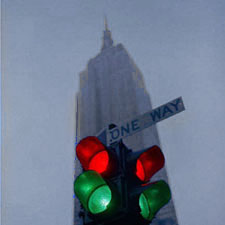Some time back, the WSJ wrote a book review of Son of Hamas. The historical background on the individual’s biography is as follows:
Mosab Yousef is the son of Sheikh Hassan Yousef, a founder and leader of the Palestinian terrorist group Hamas. Throughout the last decade, from the second Intifada to the current stalemate, he worked alongside his father in the West Bank. During that time the younger Mr. Yousef also secretly embraced Christianity. And as he reveals in his book “Son of Hamas,” out this week, he became one of the top spies for Israel’s internal security arm, the Shin Bet.
The reviewer describes the book as follows:
The book, a Le Carre-sque thriller wrapped in a spiritual coming-of-age story, is an attempt to answer what he says “is impossible to imagine: “how I ended up working for my enemies who hurt me, who hurt my dad, who hurt my people.”
“There is a logical explanation,” he continues in fairly fluent English. “Simply my enemies of yesterday became my friends. And the friends of yesterday became really my enemies.”
Worth a read.
 The wind whipped down the side street, as it does so often this time of year in New York. Like some entrapped banshee, it screeched, wildly, tearing past the long sharpened shadows of the afternoon sun, then suddenly, more restrained, whistling softly like a frightened child in a graveyard.
The wind whipped down the side street, as it does so often this time of year in New York. Like some entrapped banshee, it screeched, wildly, tearing past the long sharpened shadows of the afternoon sun, then suddenly, more restrained, whistling softly like a frightened child in a graveyard.  If you read nothing else today, or this week, or this month, you must set aside a few minutes to savor
If you read nothing else today, or this week, or this month, you must set aside a few minutes to savor  I know I’m late to this party–but only a bit later than Dean Barnett, so I don’t feel too badly. As many of you know, six Imams were removed from a US Airways flight out of Minneapolis just over a week ago, for behavior which nervous passengers found unsettling–such as loud public praying in the airport, angry talk about how evil the U.S. was and the injustices inflicted by us on Saddam and the Iraqis, and bizarre requests for seat belt extensions by those who obviously didn’t need them. After their removal from the flight, an investigation cleared them of any wrongdoing, and they later flew home (on another airline) uneventfully. Of course, the usual suspects (read: CAIR) chimed in to protest this obvious injustice, religious discrimination, and racial profiling. No doubt a host of lawsuits will be flying soon, darkening the sky like
I know I’m late to this party–but only a bit later than Dean Barnett, so I don’t feel too badly. As many of you know, six Imams were removed from a US Airways flight out of Minneapolis just over a week ago, for behavior which nervous passengers found unsettling–such as loud public praying in the airport, angry talk about how evil the U.S. was and the injustices inflicted by us on Saddam and the Iraqis, and bizarre requests for seat belt extensions by those who obviously didn’t need them. After their removal from the flight, an investigation cleared them of any wrongdoing, and they later flew home (on another airline) uneventfully. Of course, the usual suspects (read: CAIR) chimed in to protest this obvious injustice, religious discrimination, and racial profiling. No doubt a host of lawsuits will be flying soon, darkening the sky like 



 The face of evil: who can ever forget it?
The face of evil: who can ever forget it?










